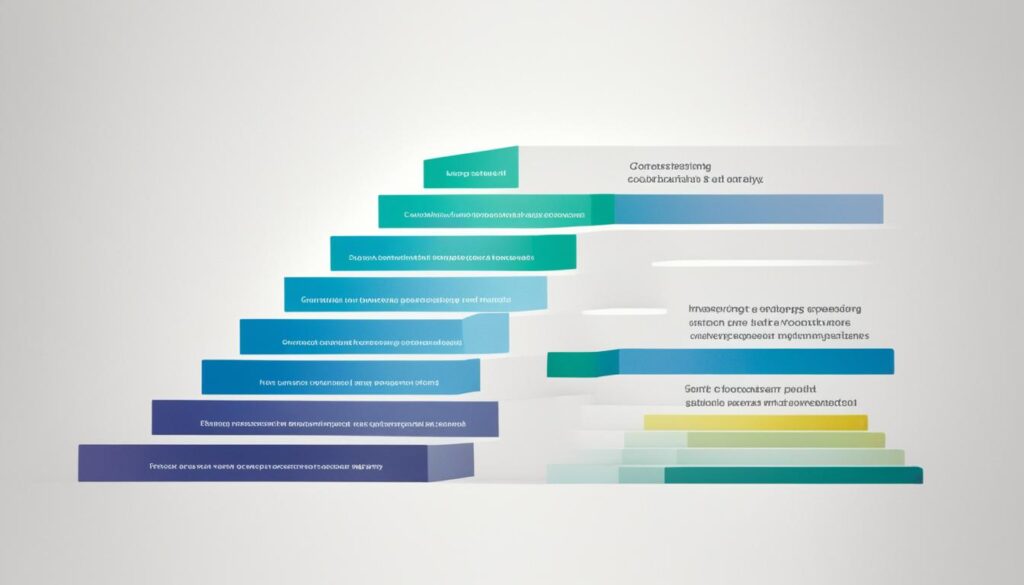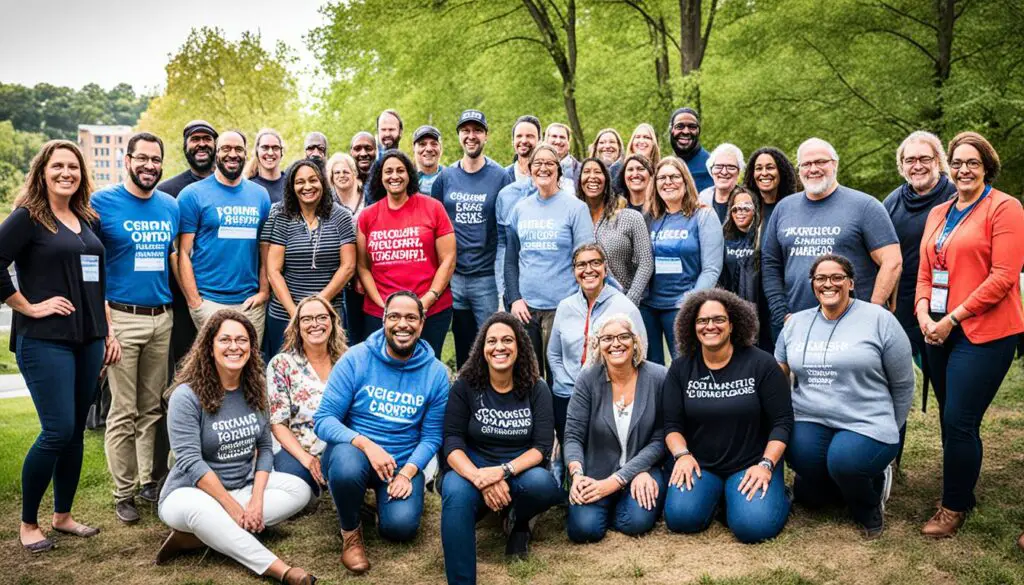Hello there! I’m excited to explore Participatory Action Research (PAR) with you. This guide will show you how to get involved in PAR projects effectively. We aim to make a real difference. So, let’s begin!
PARTICIPATORY ACTION RESEARCH is all about empowering communities. It values their firsthand experiences to solve social issues and make changes. With PAR, you don’t just watch. You join those facing the problems to find solutions and create real impact.
Before diving deep, we should look at the important parts of a PAR project. You need to build relationships, understand the community, gather info, and work together. These steps are crucial for a successful PAR project. We’ll go through each step in detail, preparing you for your PAR journey.
Keep in mind, PAR can run into some challenges. Issues like power differences and not fitting with some research systems can come up. But by connecting with current social movements, we can improve the way PAR benefits society and grows as a method.

Key Takeaways:
- PAR values the experiences of people in addressing social problems and effecting change.
- It includes those experiencing the issues in the research phase to create new understanding.
- PAR focuses on directly experienced authority, actionable knowledge, and change through collaboration.
- Connecting with social movements enhances PAR’s effect and development.
- PAR can make significant, enduring changes through partnership and empowerment.
The Value of Participatory Action Research
Participatory Action Research (PAR) values what people have learned through living tough social issues. It realizes that these people are the best to understand these problems deeply. Their insights can lead to real and good changes. PAR wants to make new knowledge by involving these folks in the research.
PAR changes who usually makes the decisions and lifts up those who are most hurt by social problems. It gives these communities power over what is studied and how decisions are made. By making their voices louder, PAR hopes to make changes that really last and help.
“PAR lets us look closely at social systems that keep inequality and wrongs going. It helps us learn from the people who can usually be overlooked, making their insights important. This working together might help us understand problems better and find new ways to fix them.”
PAR also sparks new ideas and knowledge. It knows that regular research might not deeply understand people’s lives and different views. By including those going through hard times, PAR learns things that old ways can’t teach. This leads to new viewpoints and creative ways to make things better.
PAR involves people who know their social problems firsthand. This changes the idea that only schools produce important knowledge. It puts those with direct experience in the spotlight, showing their ability to lead and make research matter.

Key Principles of Participatory Action Research
Participatory Action Research (PAR) works based on four main principles: the authority of direct experience, knowledge in action, the transformative process, and collaboration through dialogue. These rules are very important to how PAR helps solve big social issues and make real social change.
1. Authority of Direct Experience
The main part of PAR is valuing personal experiences. It says that those left out or hurt by society know a lot. By focusing on what they know, PAR gives their insights a chance to guide research and action.
2. Knowledge in Action
PAR thinks knowledge should lead to action. It’s all about learning by making changes happen. When researchers work closely with communities facing the studied issues, they understand better. Then, they can create more powerful ways to bring social change.
3. Transformative Process
PAR believes in research that transforms and empowers. It wants to change who has power, making everyone stronger together. In research, everyone in the community is involved. This lets people and whole groups work on their social problems with more power.
4. Collaboration through Dialogue
Working together and talking a lot are key parts of PAR. It gets many different people involved, each with their own skills and views. Sharing knowledge through deep discussions helps everyone learn together. This leads to new, strong ideas for change.
Following these principles, PAR research is always close to the people most affected. It works in a way that helps fight for fairness, using teamwork to make things better for everyone.

Conclusion
Participatory action research (PAR) values experiential knowledge. It involves those facing social issues in the research. This helps create real change and empower the affected communities. PAR is all about meaningful action and collaboration.
PAR is different from normal research. It works closely with social movements and challenges the usual power structures. It aims to make society fairer and more inclusive. Its approach builds on collaboration and empowerment, making lasting change possible.
PAR is focused on doing something about the issues at hand. It ensures that the voices of those impacted are central. This approach can truly change things by dealing with the main causes of social problems.
FAQ
What is participatory action research?
Participatory action research (PAR) focuses on experiential knowledge. It addresses social issues and drives social change. Those facing the issues take part in the research, creating new knowledge through systematic studies.
Why is experiential knowledge important in participatory action research?
Experiential knowledge is key in PAR. It values the insights of those directly affected by social problems. Because of this, involving these individuals in research creates new ideas for change.
What are the key principles of participatory action research?
The core principles of PAR include valuing direct experience and seeing knowledge as a tool for action. It treats research as a way to empower and transform. Plus, it relies on working together and discussing problems to use diverse skills.
How can participatory action research create social change?
PAR drives change by forming connections, promoting understanding, and taking steps. It works with social movements and challenges existing power structures. This approach helps tackle social inequalities and honor the voices of overlooked groups.
What impact can participatory action research have?
PAR can make a big difference by directly engaging those living with social issues. It values their knowledge and supports these communities. In doing so, it can bring about significant and long-lasting improvements.






